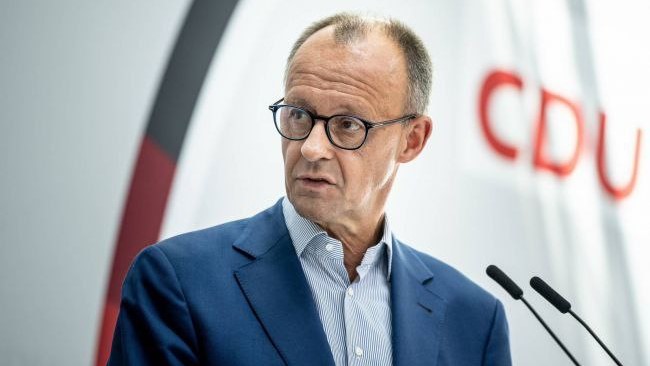Germany’s Stance on Ukraine and Diplomatic Deadlock
German Chancellor Friedrich Merz has made a significant statement regarding the ongoing conflict in Ukraine, asserting that diplomatic efforts to end Russia’s war have reached a dead end. During a Bundestag budget debate on June 9, Merz emphasized that “diplomatic means are exhausted.” This declaration came in the wake of what Ukrainian officials described as the largest Russian airstrike on the country since the full-scale invasion began in 2022. The coordinated attack targeted multiple regions, causing extensive damage to critical infrastructure across Ukraine.
Continued Military Support from Germany
Germany has remained one of Ukraine’s most steadfast defense partners, and Merz used the opportunity to reaffirm Berlin’s unwavering commitment. In mid-June, Defense Minister Boris Pistorius announced plans to allocate an additional €1.9 billion in military aid for 2025. According to the ministry, this funding will be directed towards the development and supply of long-range weapons systems. As a result, Germany’s total military support to Ukraine now stands at approximately €9 billion.
The support has included several advanced air defense systems, such as IRIS-T batteries and U.S.-made Patriot systems. These assets play a crucial role in helping Ukraine defend against missile and drone attacks, which have become increasingly frequent and destructive.
Ongoing Debate Over Taurus Missiles
One of the key topics discussed by Merz was the potential provision of Taurus long-range cruise missiles to Ukraine. While he confirmed that no decision has been made, he highlighted the time required to prepare for their use. “It would take at least half a year to train Ukrainian personnel and prepare for the use of these systems,” Merz explained.
The Taurus missiles could enable Ukraine to strike strategic targets deep within Russian territory, including critical military installations. This capability has sparked intense political debate within Germany, but Merz’s comments suggest that the possibility remains open. Germany has already agreed to supply Ukraine with 500 long-range missiles under a previous deal, although exact delivery timelines are still unclear.
Broader Implications and International Reactions
The situation in Ukraine continues to draw global attention, with various countries and leaders weighing in on the conflict. Recent developments have seen increased military support from Western nations, reflecting a growing consensus on the need to bolster Ukraine’s defenses. However, the prospect of escalating tensions, particularly with Russia, remains a concern for many analysts.
In addition to military support, there have been discussions about the potential use of nuclear doctrine if certain conditions are met. Analysts have warned that continued strikes on Russian territory could lead to unpredictable consequences. Meanwhile, some political figures in the United States have shown shifting stances on Ukraine, adding another layer of complexity to the international response.
Conclusion
As the conflict in Ukraine persists, the role of Germany and other Western allies remains pivotal. With diplomatic channels seemingly exhausted, the focus is increasingly turning to military and strategic support. The debate over long-range weapons, such as the Taurus missiles, highlights the difficult decisions that lie ahead. For now, Germany continues to stand by Ukraine, reinforcing its commitment through both financial and military assistance.







